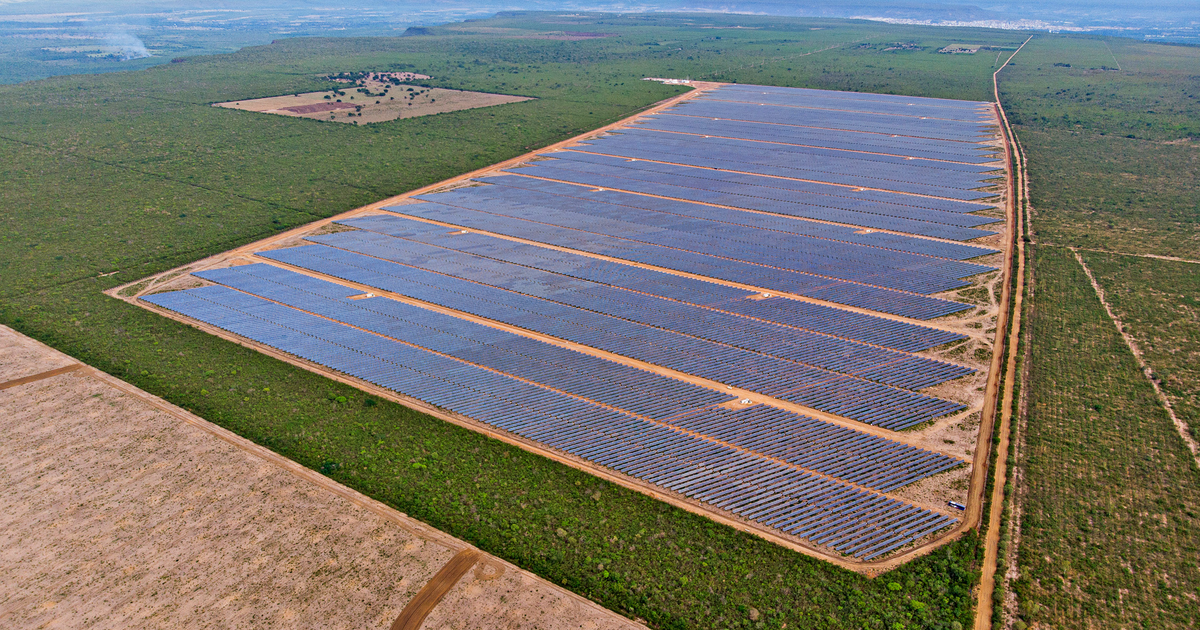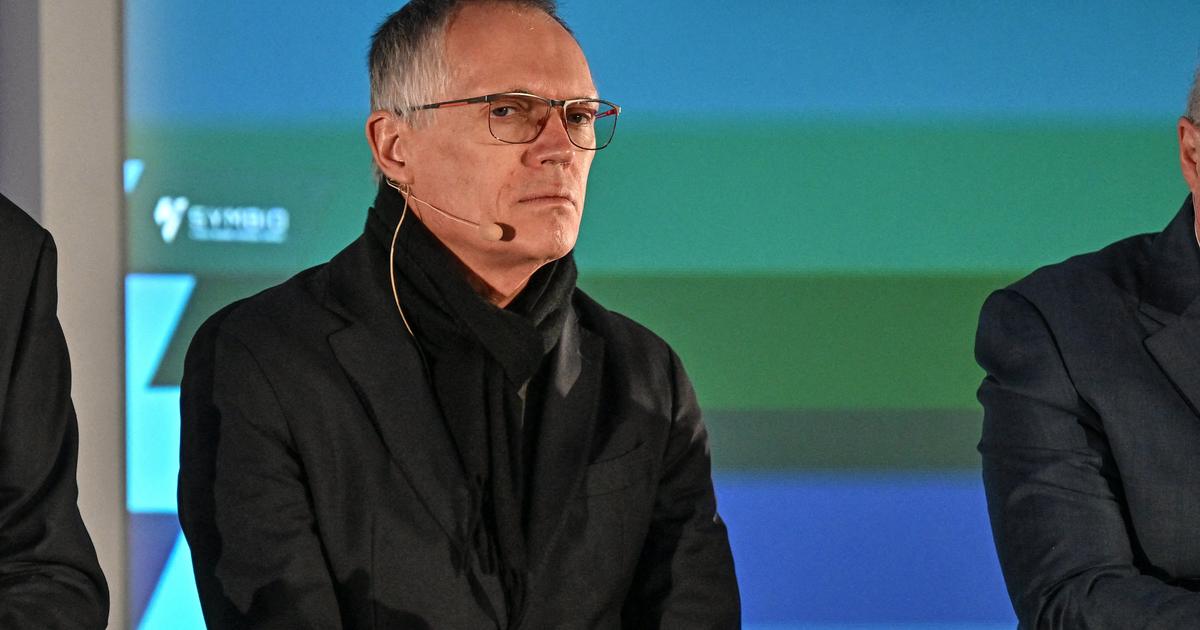Icon: enlarge
Solar park in Werneuchen east of Berlin: 250 megawatts without subsidies in 2020
Photo:
Patrick Pleul / dpa
Due to the low electricity price on the stock exchange, the support for producers of eco-energy via the Renewable Energy Sources Act (EEG) is currently often high.
Several projects, including in Brandenburg, want to show that it can be done without: through size.
According to estimates by the Berlin consultancy Energy Brainpool, supply contracts for around 560 megawatts of electricity from solar parks have now been concluded in Germany, which, according to their operators, are profitable even without subsidies.
"In mathematical terms, these are solar parks with a total area of around 1100 football fields," said Energy Brainpool expert Fabian Huneke.
For comparison: the Datteln 4 hard coal-fired power plant, which went online at the end of May against protests by climate protectors, has an output of 1,100 megawatts.
The Baden-Württemberg energy supplier EnBW is currently building one of the solar parks in Brandenburg.
With an output of 187 megawatts, the Weesow-Willmersdorf project is currently the largest solar park in Germany.
The first kilowatt hour is to be fed into the power grid this month, after which the plant will gradually go into full operation.
EnBW is investing around 100 million euros in the new solar park just outside Berlin.
9,000 megawatts of subsidy-free solar power expected by the end of the 1920s
For a long time, these large solar parks were not built because it was too expensive - and systems with an output of more than ten megawatts do not receive EEG subsidies.
Huneke now expects systems with a total output of 250 megawatts to start producing electricity this year.
Subsidy-free solar power is still a niche product.
The projects can currently only be implemented "under ideal conditions", said Carsten Körnig, General Manager of the German Solar Industry Association.
In future, however, investment conditions are likely to improve - due to falling investment costs and an expected increase in CO2 prices for coal and gas.
The solar modules have also become cheaper in recent years.
According to Körning, market researchers expect around 9,000 megawatts of subsidy-free solar power by the end of the twenties.
But even then, subsidy-free solar parks will only cover a very small proportion of the generation of solar power: According to figures from the Federal Network Agency, solar systems with a total output of 52,000 megawatts are already installed in Germany.
In order to be able to economically implement a photovoltaic project without EEG subsidies, a certain size of the system is necessary in addition to a lot of solar radiation, according to EnBW.
From today's perspective, "an economic realization from 50 megawatts is possible".
Because in addition to the solar modules, the grid connection with its own substation is a significant cost factor.
EnBW is investing around 100 million euros in the new solar park just outside Berlin.
RWE also sees opportunities
So that solar parks without guaranteed remuneration are not exposed to fluctuating stock market prices, their operators need the security that the electricity will be purchased from them at affordable prices, for example through long-term supply contracts.
In Germany, however, the market is "still in the starting blocks due to the EEG system," said a spokeswoman for the energy company Statkraft.
Statkraft, as a kind of middleman, also offers long-term supply contracts for subsidy-free electricity in Germany; one customer is the Düsseldorf green electricity provider Naturstrom.
"The market for solar power supply contracts is just getting started," says Naturstrom CEO Thomas Banning with conviction.
This eliminates "the detour via the EEG remuneration" and "the energy transition is widely accepted".
RWE is now also seeing opportunities in the sale of subsidy-free green electricity; the group wants to supply Bosch with green electricity from several smaller solar systems in southern Germany.
Icon: The mirror
apr / dpa







/cloudfront-eu-central-1.images.arcpublishing.com/prisa/DIAGMBIFCBFTJADD5SB7GXXY2A.jpg)


/cloudfront-eu-central-1.images.arcpublishing.com/prisa/7FWSL2MJ4FD5TOM366ZNU2RLTU.jpg)

